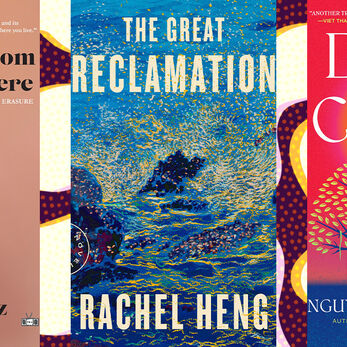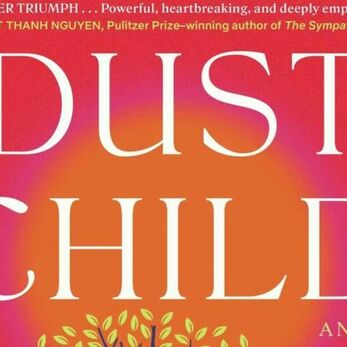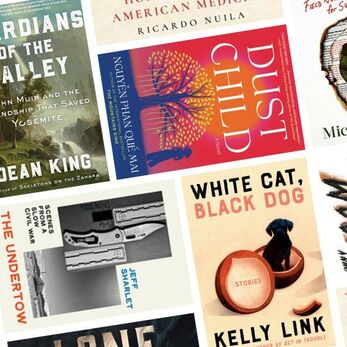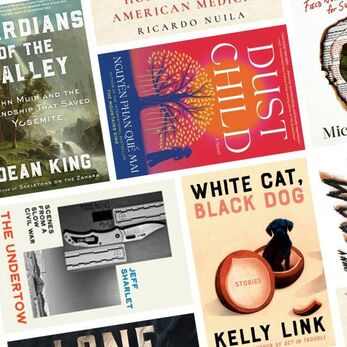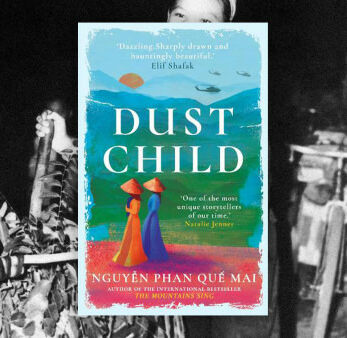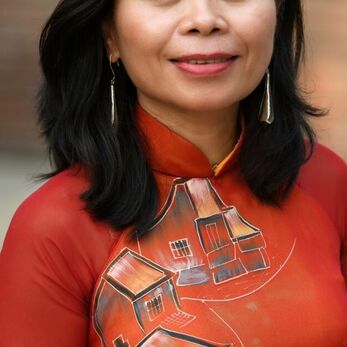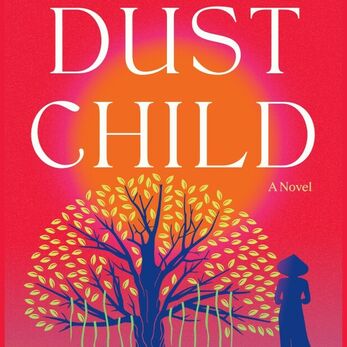Ask most bookworms to name the best Vietnamese novel and you'll get answers ranging from 2016's "The Sympathizer," by Vietnamese-American
Ask most bookworms to name the best Vietnamese novel and you'll get answers ranging from 2016's "The Sympathizer," by Vietnamese-American Viet Thanh Nguyen, to 1990's "The Sorrow of War," by Bao Ninh.
Which makes Nguyen Phan Que Mai's "The Mountains Sing," the first major novel penned in English by a Vietnamese writer, a breakout moment for Southeast Asia's fastest-growing economy.
A roman a clef, "The Mountains Sing" chronicles the multi-generational travails of a Vietnamese clan in a country riven by conflict -- including the most obvious one. More importantly, it gives readers a sense of place -- both natural and manmade -- and a glimpse into Vietnam's past through famine, land reforms, colloquialisms, and the Japanese and French invasions.
After Viet Thanh Nguyen became the first Vietnamese-American to win a Pulitzer Prize, for "The Sympathizer," he urged Vietnamese writers to take back their country's narrative, especially of the war that has been virtually monopolized by Hollywood and accounts of U.S. soldiers. Few are better poised to do so than Que Mai, who spent her formative years in Vietnam, and writes mostly in Vietnamese.
Except for scant mention of a few taboos -- it's not often that locals write about characters who ask if the communist party's land redistribution worked, or about traders seen as traitors to the party for their bourgeois profiteering -- much of "The Mountains Sing" will be familiar to Vietnamese readers. But it's required reading for foreigners with an interest in Vietnam's people and history.
Set mainly in the north, the novel alternates between two narrators: Huong, who comes of age in 1970s Hanoi, and her grandmother Dieu Lan, whose own life story spanning calamity and recovery -- often through the kindness of strangers -- followed by yet more calamity, has a David Copperfield-esque quality to it.
Many episodes turn on a fateful moment in history. Dieu Lan loses her father -- horrifically, at the hands of the wartime Japanese -- and then her mother as well, for stealing corn while in the grip of national starvation. The tale is all the more poignant because it is based on the death of Que Mai's own grandmother in the Great Famine of 1945.
When it comes to war literature, I reflexively avoid it. But with "The Mountains Sing," there is a duty not to look away, to see the bombed-out city streets and turns of treachery that, once explained, seem inevitable. Que Mai's novel also presents underdeveloped characters who leave us with an unsatisfying paradox that is hard to believe: that, in war, no one seems to be blameless and no one seems to take the blame.
Most of the novel is not so heavy and happens off the battlefield. One highlight is a snapshot of communist party governance, a sort of town hall where locals vote to accept a neighbor's gift, a communal well. In another episode, rural workers get swept up in anti-capitalist fervor and turn on their landed neighbors.
For those who've lived in Vietnam, some of the book's more prosaic language will be charming because it rings true. Women securing their pockets with safety pins. Mechanics squeezing tires in pans of water to check for punctures. Other details -- Trang Tien ice cream, Hanoi streets named after trades -- have been trodden over so many times, they're better suited for tourist guidebooks.
The author's background as a poet comes through in passages overloaded with metaphor. When Dieu Lan travels to Hanoi on foot, she was a "butterfly who'd lost its wings," surrounded by dangers like "sharp thorns," with hope as her "guiding light." The poetic inclination seeps into some of the dialogue, so that Que Mai's voice becomes everyone's voice. "Dappled sunlight glimmered on their bodies," says Uncle Dat, implausibly describing a sighting of enemy soldiers.
Some parts of the book -- the flowery language, the Panglossian mood -- will leave readers with the feeling of a sugar high. Still, "The Mountains Sing" seems faithful to Vietnam's 20th-century reality, from the many and beautifully-explained proverbs, to samples of a local's lived experience, like the children who make up a game of chopsticks and pebbles, or their parents who fill production quotas.
Recently I tried to diversify my reading: Malaysia's "The Harmony Silk Factory," Nigeria's "The Fishermen," Turkey's "The Red-Haired Woman." Despite their various geographies, though, the stories all spring from a decidedly less-diverse milieu: writers who had a chance to leave their countries for a time or for good.
Their voices are essential but only one part of the story. Whose voices are missing? Who is left behind? Que Mai joins these writers, splitting her time in Vietnam and abroad, swapping between writing in English and Vietnamese, and coming part of the way to add a bit of what's missing. She's been a farmer, a street vendor, an investor of stocks and property, a bleeding-heart idealist and intellectual, and now a debut novelist.
Much as I enjoyed books like "The Things They Carried" and "The Best We Could Do," they are American stories. "The Mountains Sing" is a story from a daughter of Vietnam, in her own words.




